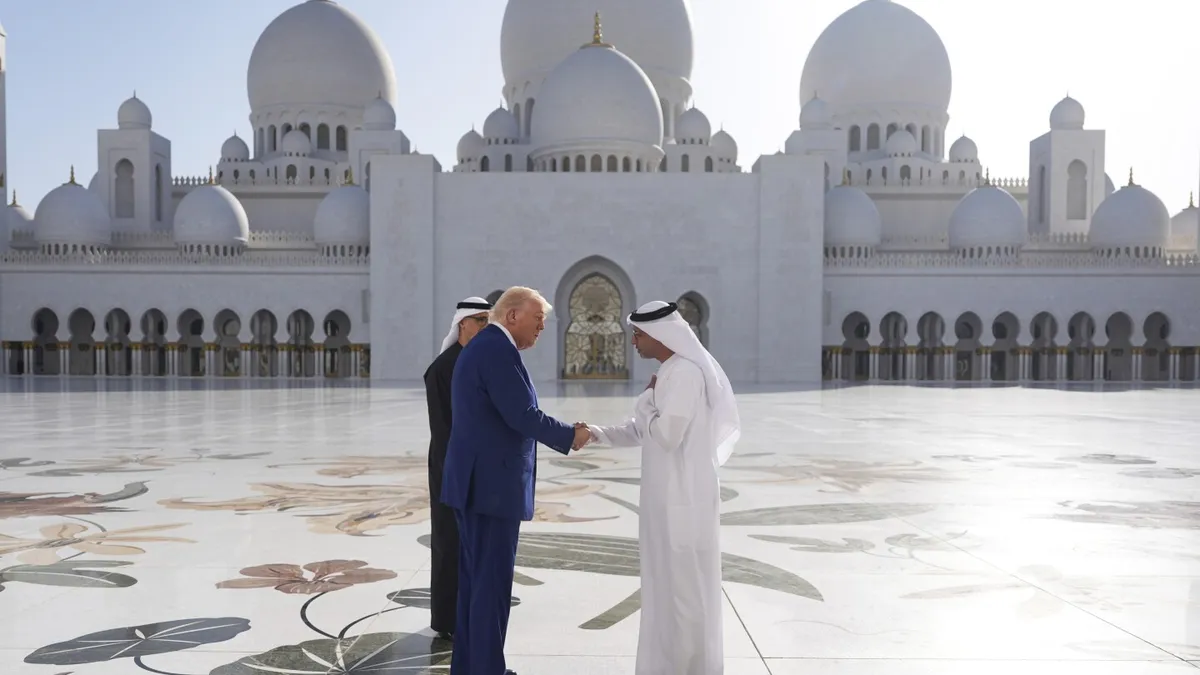
As U.S. President Donald Trump traveled from one opulent palace to another, engaging with Arab leaders and heralding a new chapter in the Middle East, many in Israel expressed concerns that their long-standing ally in the White House might be losing interest. For decades, Israel has skillfully utilized its special relationship with the United States, acting as a crucial gatekeeper to Washington for Arab states seeking U.S. favor. From the landmark Camp David Treaty with Egypt to the groundbreaking Abraham Accords orchestrated during Trump’s first term, Israel has been pivotal in shaping U.S.-Arab relations. Historically, the interests of Arab nations have often taken a backseat when they conflicted with those of Israel.
This week, in a move that surprised many, Saudi Arabia and Turkey facilitated a historic meeting between Trump and Syria's newly appointed president. Trump’s decision to lift sanctions on Damascus was presented as a gesture to Saudi Crown Prince Mohammed bin Salman and Turkish President Recep Tayyip Erdogan. This decision was met with dismay in Israel, which perceives Syria as a significant security threat and had actively urged Trump to maintain the sanctions. Israel's exclusion from important U.S. initiatives, including ongoing negotiations with Iran and a ceasefire with the Houthi rebels in Yemen, highlights a growing disconnect.
When asked if he was aware of Israel's opposition to recognizing Syria's new government, Trump casually responded, “I don’t know, I didn’t ask them about that.” This lack of communication has raised alarms in Israel, with columnist Sima Kadmon lamenting in Yediot Ahronot that “we found ourselves playing the role of Cinderella before the transformation.” The sentiment reflects Israel's fear of being sidelined in a rapidly changing regional landscape.
Trump’s recent journey also saw him skip Israel during his first major foreign tour, opting instead to visit Saudi Arabia, Qatar, and the UAE. Additionally, Israel was not included in a deal with Hamas that facilitated the release of an American hostage from Gaza, where Israel is actively engaged in military operations against the militant group. Furthermore, Trump’s negotiations with Yemen’s Houthi rebels, which have allowed them to focus their efforts on Israel, and talks with Iran regarding its nuclear program—potentially leading to another contentious agreement—have left Israeli officials feeling marginalized.
Despite the absence of open confrontations between Trump and Israeli Prime Minister Benjamin Netanyahu, the dynamics appear to be shifting. While both leaders assert that their relations are stronger than ever, Trump’s current approach seems more focused on achieving swift victories—such as significant investment deals and diplomatic agreements—rather than reinforcing Israel's longstanding security interests. Netanyahu has struggled to provide Trump with the kind of quick wins he seeks, particularly given the ongoing military campaign in Gaza, which has resulted in substantial casualties and destruction.
According to Eytan Gilboa, an expert on U.S.-Israeli relations, Trump has provided Israel with numerous opportunities and resources to conclude the war in Gaza, yet the situation remains unresolved. “The war is intensifying,” Gilboa notes, suggesting that Netanyahu’s intransigence may be diminishing his standing in Trump’s eyes.
Trump has publicly downplayed any rift with Israel, asserting that his strong relationships with regional leaders ultimately benefit the nation. Ironically, Israel is finding itself excluded from a regional realignment that it played a significant role in creating. Following the October 7 attack, Israel's military actions against Hezbollah in Lebanon and its campaign against Iranian interests have altered the landscape, potentially making Iran more amenable to negotiations regarding its nuclear ambitions.
Historian and former Israeli ambassador to the U.S. Michael Oren points out that Trump’s approach mirrors that of former President Barack Obama, who also began his presidency with a notable absence of visits to Israel. This pattern disrupts the traditional expectations of U.S.-Israeli relations, which typically avoid surprises. However, few anticipate that Trump will publicly challenge Israel's actions in Gaza, despite the ongoing humanitarian crisis.
Trump has articulated a desire to move away from the “lectures” that characterized previous U.S. administrations, suggesting that prolonged American interventions have often resulted in negative outcomes. As a result, the Israeli-Palestinian conflict remains an area where Trump is unlikely to seek quick resolutions. As Oren succinctly states, “He’s not looking for a fight with Israel,” but the war's resolution could manifest in various forms.